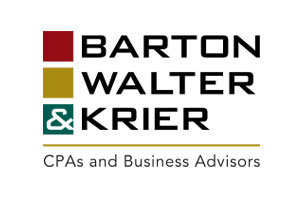Category: CPA Services
What CPAs Do in the Tax Off-Season
June 1, 2022 | Barton Walter and Krier
The narrow, early year window for filing taxes is likely when you rely most on your tax professional. But these numbers virtuosos keep busy with a host of duties after filing deadlines, too. Ever wonder what CPAs do in the tax off-season? Keep reading to find out how they keep the gears turning and client financials in order throughout the year. Countless Capabilities Beyond Taxes Certified public accountants do more than crunch numbers on your Form 1040. They are dependable advisors that provide a litany of services to help clients reach their individual or business financial goals. CPA Steve Hagstrom of Barton, Walter & Krier shared insight into some of the lesser-known responsibilities tax professionals handle when they’re not calculating and filing a client tax […]
Read MoreExplore a Day in the Life of a CPA
September 22, 2021 | Barton Walter and Krier
You’ve no doubt heard the term bandied about over the years, but what exactly does a CPA do? To answer this and other related questions, we turned to Anna-Liisa Lampi, a Senior Manager at Barton Walter Krier. Lampi provides insight as we go beyond taxes and explore a day in the life of a CPA. All in a Day’s Work So, what does a Certified Public Accountant do? In a word, “Everything,” Lampi said. She then went on to reveal that a CPA’s job involves a lot of problem solving and multitasking. “You’re working with various clients or on different jobs, checking where you are or where the staff is that’s working with you, and following up with clients or staff to keep things moving,” […]
Read MoreSuccession Planning: Transferring Ownership of Your Business
August 31, 2021 | Barton Walter and Krier
For many business owners, developing a solid succession plan can be overwhelming. There’s the question of who will take over the business upon your retirement, demise, or disability. It’s never too early to create a successful plan. With the help of experienced legal, financial, and tax professionals, you can secure a sound financial future for yourself and your loved ones. Read on as we discuss transferring ownership of your business through succession planning. First order of business: choose your successor This may seem like a no brainer however, choosing the right successor is arguably the most important step in the process. Selecting someone to take over the business isn’t easy. Sometimes the most logical choice is a family member or trusted existing employee. However, each […]
Read More

